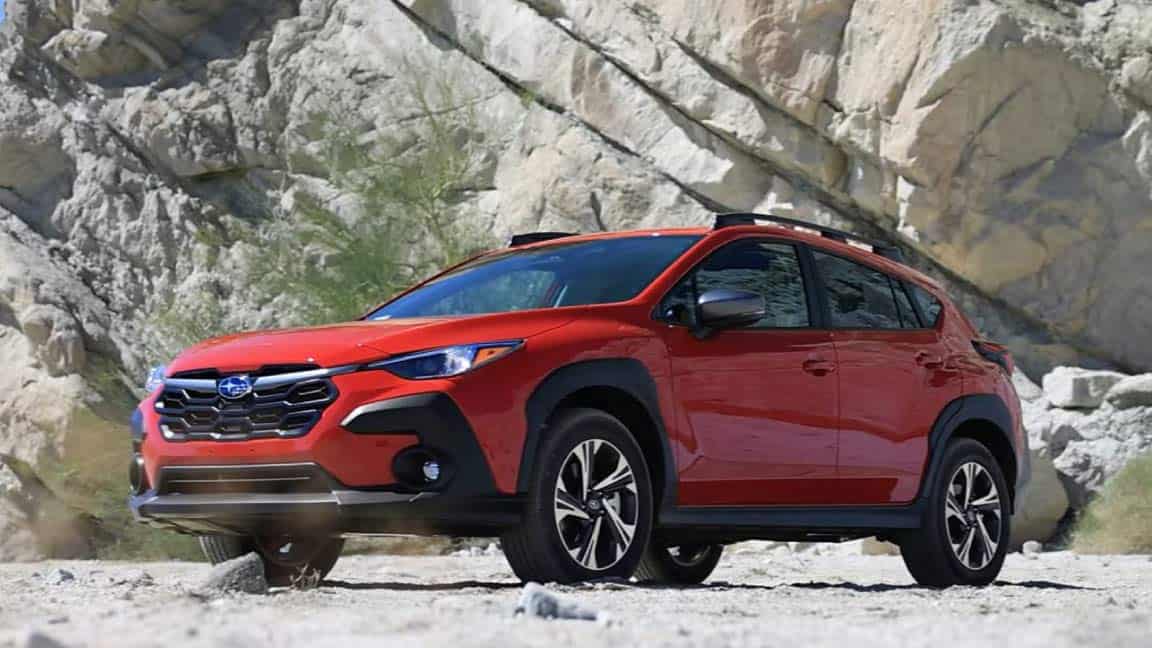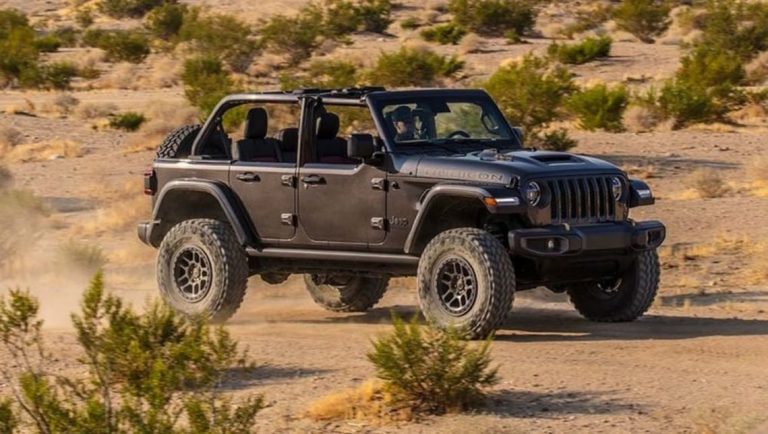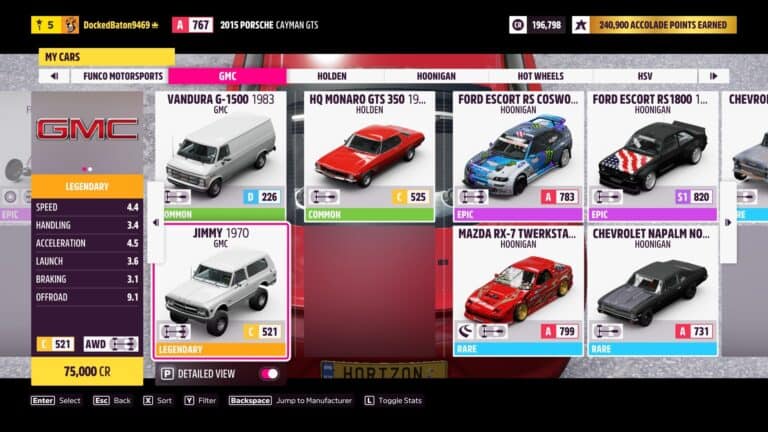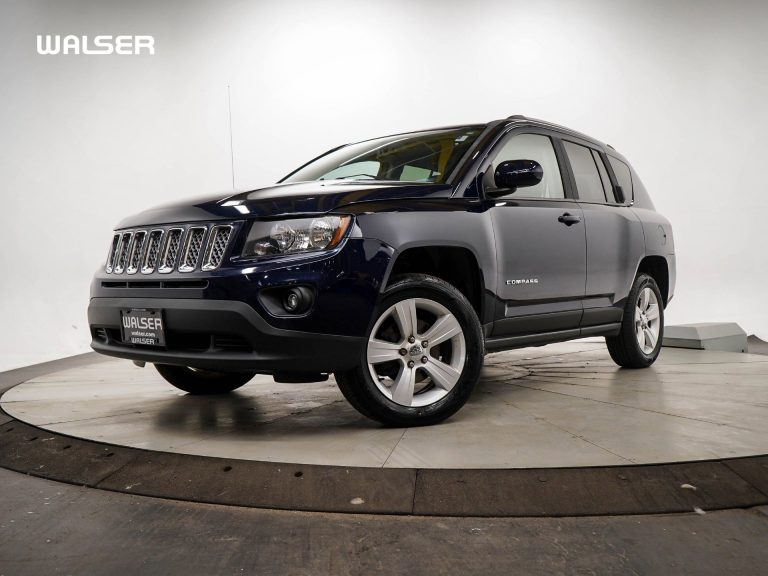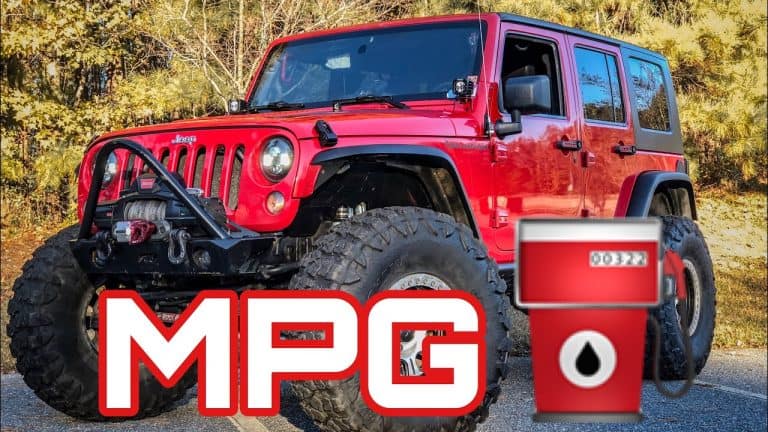What Gas Does Jeep Take? Your Ultimate Fuel Guide!
Jeep takes gasoline as fuel. Using the recommended gasoline grade specified in the owner’s manual is important for optimum performance and fuel efficiency.
Jeep is a brand of American automobiles that has been produced since 1941. Its lineup includes sport utility vehicles (SUVs) and off-road vehicles built to withstand various terrains and weather conditions. One of the most important things about owning a Jeep is knowing what type of fuel it needs.
In this article, I will explore what gas does Jeep take. As stated above, a jeep takes gasoline, but using the appropriate gasoline grade is crucial.

Credit: www.jdpower.com
The Importance Of Choosing The Right Fuel For Your Jeep
Understanding The Unique Fuel Requirements Of Your Jeep
Jeeps have unique fuel requirements due to their distinctive engine types. All jeeps run on gasoline, but diesel options are available on newer models. Additionally, the performance of your jeep is directly impacted by the fuel type you use. Therefore, as a driver, you must be aware of the fuel requirements of your particular jeep model.
Here is what you need to know:
- Jeeps with a standard gas-powered engine require a minimum of 87 octane fuel and the usage of ethanol should be avoided.
- Jeeps with a turbocharged or high-performance engine might require a higher octane fuel (usually 91 or 93).
- Diesel-powered engines are also offered on some jeep models, and they require diesel fuel with a cetane rating of 50 or greater.
The Impact Of Using The Wrong Fuel On Your Jeep’S Performance And Longevity
It’s important to choose the correct fuel for your jeep because using the wrong type of gasoline can negatively affect its performance, fuel efficiency, and even longevity. Here are some impacts of using the wrong fuel:
- Using fuel with octane ratings below the recommended minimum can cause engine knocking, which can eventually lead to severe engine damage.
- The use of ethanol fuels can cause corrosion to the engine components and harm fuel lines and storage tanks.
- Putting diesel fuel into a gas-powered jeep can damage the engine and fuel system and can be very expensive to fix.
How To Determine The Best Gas For Your Jeep’S Specific Model
When determining the best fuel for your jeep’s specific model, it may be helpful to consult your vehicle owner’s manual. You can also use your jeep model’s vin number to look up its specific fuel requirements online. The jeep manufacturer might also recommend a specific brand of gasoline.
Here are some things to consider when determining the best gas for your jeep:
- Check the owner’s manual, the label on the fuel door, or the manufacturer’s website to find the recommended fuel type and octane rating.
- High-performance or turbocharged jeeps will require high octane fuel, while regular gasoline is suitable for standard jeeps.
- Avoid using ethanol fuel on any jeep, as it can damage the engine.
- Always buy gas from a trusted supplier to avoid any contamination that could harm your engine.
By understanding the unique fuel requirements of your jeep, the impact of using the wrong fuel, and how to determine the best fuel for your specific model, you can keep your jeep running smoothly and efficiently for years to come.
Gasoline Grades: What You Need To Know
If you’re a jeep owner, you might have wondered, “What gas does jeep take? ” Using the correct gasoline grade is vital for proper car maintenance, both for performance and longevity. Here’s what you need to know about gasoline grades and their implications for your jeep.
Explaining The Different Grades Of Gasoline Available
Gasoline comes in different grades, including regular, mid-grade, and premium. The differences in grades come down to the octane rating, which is a measure of gasoline’s ability to resist knocking or pinging during combustion.
- Regular gasoline (87 octanes) is the most commonly available and recommended for most vehicles.
- Mid-grade gasoline (89 octanes) offers better performance and fuel efficiency while being less expensive than premium gasoline.
- Premium gasoline (91-93 octanes) offers the best performance and is suitable for high-performance vehicles.
The Benefits And Drawbacks Of Using Premium Gasoline In Your Jeep
Using premium gasoline in your jeep can offer a few benefits, such as better performance and fuel efficiency. However, it also comes with a higher price tag, and not every jeep owner needs to use it.
- Premium gasoline can provide better engine performance and fuel economy in high-performance engines. However, using it in a standard engine may not improve performance much, and it’s not recommended for certain jeep models.
- Premium gasoline can be more expensive than regular gasoline and may not provide value for money. It’s important to weigh the benefits against the cost before choosing a gasoline grade.
Why Using The Recommended Gasoline Grade Is Vital For Proper Car Maintenance
Using the recommended gasoline grade for your jeep is essential for the engine’s proper maintenance and longevity. Using a lower grade can lead to engine knocking, while using a higher octane rating than recommended may provide no benefits.
- Using lower octane than recommended can cause the engine to knock or ping, which can damage the engine in the long run.
- Using higher octane than recommended doesn’t offer any benefits beyond what the engine is designed to handle. Using premium gasoline in a jeep model that doesn’t require it doesn’t provide any performance gains.
Using the correct gasoline grade for your jeep can make a significant difference in the long-term maintenance and performance of the engine. Choose the grade that the jeep manufacturer recommends, and don’t overspend on gasoline that your engine doesn’t need.
Ethanol Blends: Is It Safe To Use In Your Jeep?
What gas does jeep take? Ethanol blends: is it safe to use in your jeep?
Jeep owners are often confused about which type of fuel to use in their vehicles. Ethanol blends are becoming a popular choice for car owners due to their environmental benefits. However, is it safe to use in your jeep, and what are the effects it has on your vehicle’s performance?
In this blog post, we will take a closer look at ethanol blends and help you understand what type of gas your jeep needs.
What Is E10, E15, And E85 Ethanol
Ethanol is a type of alcohol that is derived from corn and other renewable crops. It is often blended with gasoline to create a more eco-friendly fuel source. There are different types of ethanol blends that are available in the market:
- E10 – this blend contains 10% ethanol and 90% gasoline. It is the most commonly used blend in the us and is safe to use in all jeeps.
- E15 – this blend contains 15% ethanol and 85% gasoline. It is not recommended to use in older jeeps as it can cause damage to the engine.
- E85 – this blend contains 85% ethanol and 15% gasoline. It is only recommended to use in flex fuel jeeps as it can cause damage to non-flex fuel engines.
Understanding The Effects Of Ethanol Blends On Your Jeep
Ethanol blends can have both positive and negative effects on your jeep. Here are some things you should be aware of:
- Positive effects
- It burns cleaner and produces fewer emissions, which is better for the environment.
- It can provide slightly better fuel efficiency compared to gasoline alone.
- It is a renewable source, which reduces dependency on imported oil.
- Negative effects
- Ethanol blends can cause damage to certain fuel system components such as rubber seals, gaskets, and plastic parts.
- It can cause water absorption in the engine’s fuel system, leading to fuel system corrosion and decreased engine performance.
- It can cause engine misfires and check engine light activation, leading to costly repairs.
Tips On How To Use Ethanol Blends Safely In Your Jeep
It is essential to use ethanol blends correctly to ensure you use them safely in your jeep. Here are some tips to help you:
- Check your owner’s manual to determine which ethanol blends are safe to use in your jeep.
- Use high-quality fuel that contains fewer contaminants.
- Avoid prolonged fuel storage in your jeep’s tank, as it can lead to water absorption.
- Be mindful of the season when using ethanol blends, as they are more prone to absorption in high humidity and temperature climates.
- If you experience any issues with your jeep after using ethanol blends, take your vehicle to a certified mechanic for assistance.
Ethanol blends are a suitable alternative to traditional gasoline for those who want to reduce their carbon footprint. However, it is essential to understand their effects on your jeep and how to use them safely. By following the tips outlined above, you can confidently use ethanol blends in your jeep and enjoy their benefits.
Diesel Fuel: An Alternative To Gasoline For Jeeps
Jeep enthusiasts know that fuel efficiency and drivability are crucial factors when selecting the right suv for their off-roading and outdoor adventures. With the availability of diesel engines in modern jeeps, drivers now have an alternative to gasoline engines that offers improved range and fuel economy.
We’ll explore the benefits of diesel fuel and how it works in jeep vehicles. We’ll also help you determine if a jeep diesel engine is right for you.
Overview Of Diesel Fuel And Its Benefits
Diesel fuel is commonly used in trucks and suvs due to its high energy content and improved fuel economy. Unlike gasoline, diesel fuel is not ignited by a spark, but by the heat generated by the compression of air in the engine.
This results in a more efficient combustion process, resulting in better fuel economy and fewer emissions. Some benefits of diesel fuel include:
- Increased fuel efficiency: Diesels generally get better mileage than similar gasoline engines. The jeep wrangler diesel delivers an estimated 29 mpg on the highway.
- Better towing capacity: Diesel engines can produce more torque, which means they can tow heavier loads than gas engines.
- Longer lifespan: Diesel engines are built to withstand the rigors of heavy-duty use, which often results in longer lifespans than gas engines.
How Diesel Engines Work In Jeeps
Jeep diesel engines operate similarly to gasoline engines, but with a few key differences. Instead of igniting the air/fuel mixture with a spark plug, diesel engines use compression to ignite the fuel. When the air is compressed in the engine cylinder, its temperature rises and ignites the fuel injected by the fuel injector.
As a result, diesel engines tend to have higher torque output at lower rpms, which is why they are often used in trucks and off-road vehicles.
How To Determine If A Jeep Diesel Engine Is Right For You
Now that you know the benefits of diesel fuel and how jeep diesel engines work, you may wonder if a diesel-powered jeep is right for you. Here are some factors to consider:
- Fuel costs: Diesel fuel is generally more expensive than gasoline, though diesel engines offer better fuel economy. Consider your driving habits and fuel needs to determine if the savings in fuel costs are worth it.
- Towing needs: A diesel-powered jeep may be a better option if you tow heavy loads due to its increased torque output.
- Driving style: Diesel engines tend to have more low-end torque, which makes them ideal for off-road adventures. If you plan on doing a lot of off-roading, a diesel engine may be the better choice.
Choosing between a gasoline-powered jeep and a diesel-powered jeep depends on your preferences and driving needs. While gasoline engines are more common, diesel engines offer improved fuel economy, longer lifespans, and better towing capacity, making them a worthwhile option for jeep enthusiasts.
Top Tips For Fueling Your Jeep
For many jeep owners, fueling their jeep can be a daunting task. With so many different types of gas available, it can be difficult to know which one to choose. Here are some tips to help you fuel your Jeep efficiently and effectively.
Dos And Don’Ts Of Fueling Your Jeep
It is important to know the do’s and don’ts of fueling your jeep to ensure that you maintain your vehicle’s health and performance. Here are some crucial dos and don’ts to keep in mind:
Dos:
- Do use the recommended gasoline type for your jeep model.
- Do read the fuel pump’s instructions carefully before fueling.
- Do make sure the gas cap is tight after each refueling.
- Do keep your jeep’s fuel tank at least half full at all times to prevent sediment buildup.
- Do use reputable gas stations to avoid contaminated fuel.
Don’ts:
- Don’t mix different types of gasoline.
- Don’t overfill your jeep’s fuel tank to avoid spillage.
- Don’t always go for the lowest price gas – it may contain lower-quality additives that can damage your vehicle.
- Don’t use gas stations that have a high rate of customer complaints or bad reviews.
- Don’t leave the pump unattended while fueling your jeep.
Common Fueling Mistakes Jeep Owners Make
Many jeep owners make mistakes when fueling their jeeps, and these can lead to poor vehicle performance and potential damage. Here are some common mistakes to avoid:
- Filling up with the wrong type of gas for your model.
- Overfilling your jeep’s fuel tank, causing spillage and potential damage to your vehicle.
- Using low-quality gasoline, which contains fewer additives and can lead to engine knock and other damage.
- Fueling up in a rush and not reading the instructions on the pump, potentially causing damage to your vehicle.
- Letting your jeep’s fuel tank run low on gas, potentially causing your car to stall or suffer from sediment buildup.
Tips For Maximizing Fuel Efficiency And Extending The Life Of Your Jeep
Maintaining your jeep’s fuel efficiency is crucial for a smooth ride and fuel economy. Here are some tips to maximize fuel efficiency and extend the life of your jeep:
- Drive smoothly and avoid sudden acceleration or stopping.
- Avoid carrying excess weight in your jeep.
- Keep up with regular maintenance and checkups.
- Use high-quality engine oil and replace it regularly.
- Maintain proper tire pressure and rotate your tires regularly.
- Use a fuel economy calculator to monitor your fuel usage and adjust your driving habits accordingly.
Fueling your jeep is not rocket science, but it certainly requires some attention to detail. By following these top tips and avoiding common mistakes, you can keep your jeep running smoothly and efficiently for years to come.
Frequently Asked Questions For What Gas Does Jeep Take
What Type Of Gas Does A Jeep Take?
Jeep vehicles typically require regular unleaded gasoline with at least an octane rating 87.
How Often Does A Jeep Need Gasoline?
The frequency of refueling your Jeep will depend on how much you use your vehicle and how efficiently it runs.
Can I Use Premium Gas In My Jeep?
If your jeep’s engine requires regular gasoline, premium gas will not provide any additional benefits.
How Much Gas Can A Jeep Hold?
The fuel tank capacity of a jeep can vary by model, but most jeeps can hold between 15-24 gallons of gas.
How Do I Know When My Jeep Needs Gas?
Your jeep’s fuel gauge will indicate when it is running low on gas. Refueling before the gauge reaches empty is recommended to prevent damage to the engine.
Conclusion
Now you know what gas Jeep takes; you can select the right fuel to power your vehicle. Whether you have a jeep wrangler, Cherokee, or grand cherokee, it’s essential to choose the right fuel type to ensure optimal engine performance and longevity.
While some jeep models require regular gasoline, others need premium or diesel, so it’s important to check the owner’s manual or gas cap to determine the fuel your jeep needs. When filling up your gas tank, ensure you visit a reputable gas station and avoid filling up with e85 fuel unless your jeep is a flex-fuel vehicle.
Proper maintenance and servicing of your jeep, including regular oil changes and tune-ups, can help keep your jeep running smoothly and efficiently. So, keep the right fuel in your jeep’s tank and confidently hit the road.

